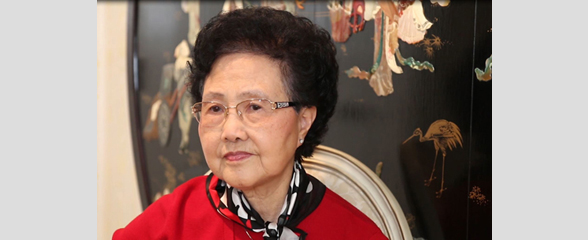 | Kimmie Lee Tie discusses her early life in China and how World War II impacted her family and interestingly her diet. She talks about the experiences she had cooking on her familys small farm and how after the war she married a Chinese American sailor and moved to the United States. Living in the US, Kimmie and her husband bought a Cantonese restaurant in 1957 which they operated for twenty years. In this environment, she taught herself how to cook with a wok and developed her Chinese American tastes. Make sure to listen in for her personal recipes, especially her favorite butterfly shrimp. | 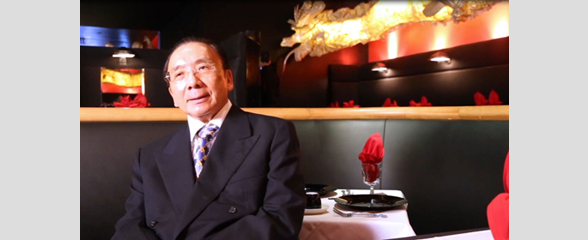 | Michael Tong describes his path from his birth of Anhui to becoming one of the most successful restaurateurs in New York City with two four-star restaurants. Moving first to Shanghai and Hong Kong before settling in the US, Mr. Tong studied civil engineering but chose to work in a NYC restaurant after graduation. From there, he opened up two restaurants, Shun Lee Palace and Shun Lee West, where he developed his love for different Chinese cuisines and helped bring Sichuan and Hunanese food to New York and the US. Tune in to hear his thoughts on what makes certain Chinese food authentic and his view of how Chinese food and American tastes have changed since the 1970s. | 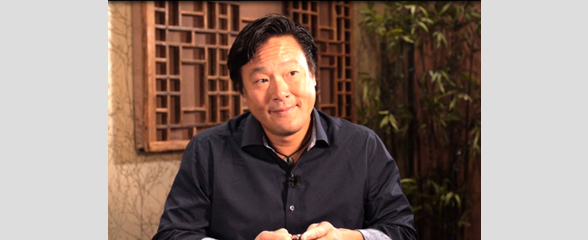 | Ming Tsai talks with MOCA about his lifelong relationship with food and how he came to be one of the most successful East-West fusion chefs. Listen in as Ming explains the role that food and cooking played in his early life growing up around his grandparents in a Chinese-American household and visiting Taiwan. Despite going to Yale for a degree in engineering, he ultimately decided to become a chef, and after working in several famous French kitchens and culinary schools, he pursued a hospitality degree at Cornell which launched him into hotel management. He eventually followed his dream of becoming a chef-owner at his own restaurant, Blue Ginger. Throughout the discussion, Ming weaves in beautiful anecdotes about food and his philosophy of how to blend cuisines successfully. He concludes his discussion with his thoughts on the importance of charity in his life and his experience using food for diplomacy. | 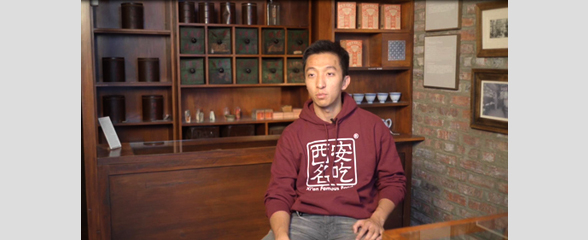 | Jason Wang was born in XiAn, China and moved to the U.S. when he was eight years old. Wang and his family lived in various suburban communities during his childhood while his father worked at different Chinese restaurants. Wang’s father eventually opened a bubble tea franchise that later evolved into their successful XiAn Famous Foods restaurant. After spending college breaks helping his father at the bubble tea shop and feeling ungratified by his post-graduation corporate job, Wang decided to begin his career as a restauranteur with his father. Wang helped his father update XiAn Famous Foods by translating its menu into English and creating a website for the business. The original Flushing, Queens location developed a solid fanbase and saw even greater success after Anthony Bourdain mentioned the eatery on his hit television show No Reservations in 2008. Since then, XiAn Famous Foods has expanded to over ten locations across New York City five boroughs. Wang is proud to have pioneered the previously unknown street cuisine of his hometown in America. He hopes that their “fast-casual†restaurant model will enable them to expand to other regions in the U.S. and introduce an increasingly adventurous American public to Xian classics like their iconic liang pi “cold-skin noodles.†| 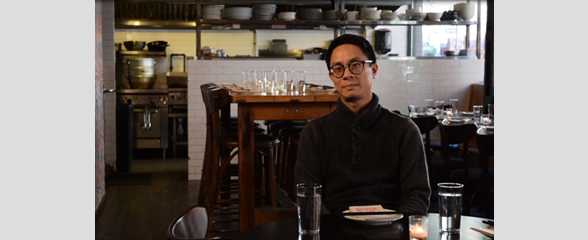 | Doron Wong grew up in Boston, Massachusetts in a traditional Cantonese family. Wong father emphasized the importance of understanding their familys cultural heritage during Wong childhood. His first experience in the restaurant world was a job at a local pizzeria when he was a teenager. During high school Wong experience working at an Asian fusion restaurant solidified his desire to pursue a career in the culinary world. Wong attended culinary school before moving to New York City and working under renowned chef David Burke. Continuing his culinary career abroad, he further refined his skills in various Hong Kong and Singapore kitchens. Wong began working with celebrity chef Susur Lee while in Singapore, developing his Chinese cooking skills and later assisting Susur Lee with his first NYC restaurant, Shang. Wong hopes his Yunnan and Cantonese cooking will help dispel stereotypes about Chinese food in America. | 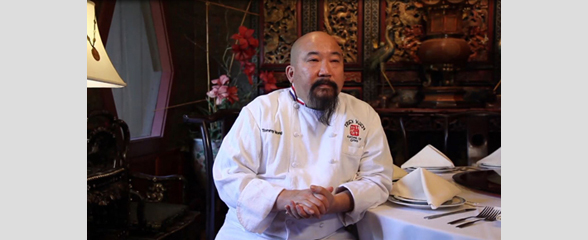 | Tommy and Frank Wong discuss their experience coming to America from Hong Kong with their three brothers and working in a variety of restaurants before starting their own. The brothers lived across the US in Texas, Kansas, and San Francisco until they started their own restaurant in New Orleans. Tommy offers an interesting explanation of the history of Chinese food in America as well as how he worked to blend the styles and flavors of Chinese and Louisiana cuisine into what he considers to be the highlights of both. Frank similarly offers some recipes and explains the influence of local Louisiana cuisine on his cooking. He concludes by discussing some of his familys charity work and urging Chinese restaurants to be supportive of one another and not be too competitive. | 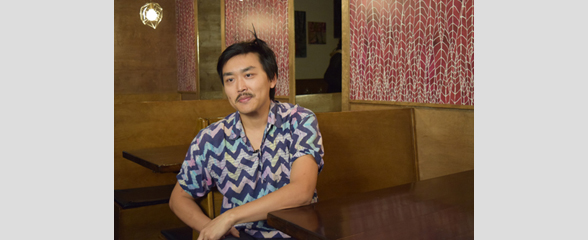 | This oral history focuses on the culinary practice of Jonathan Wu. He discusses his training and his time living in France and Italy. He discusses how he learned his Chinese cooking from his mother along with developing dishes for his restaurant Fung Tu. | 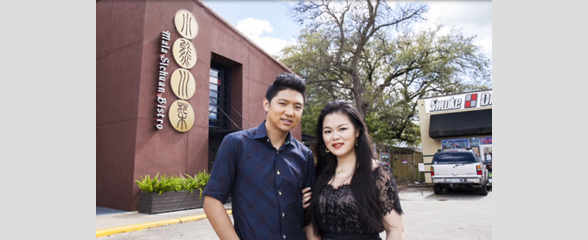 | Cori Xiong and Hen Chan started the Mala Sichuan Bistro restaurant business in Houston, Texas. The two met while studying at University of Texas Austin. Xiong father was a food engineer in Sichuan, China and convinced Xiong to start her own family business. With the help of family, Xiong was able to bring authentic Sichuan flavors to the United States. All the chefs that work in her restaurants have studied at a culinary school in Sichuan. Xiong and Chan both believe that regional Chinese cuisine will continue to be popularized and accepted in America. They hope to see a future where Americans are more sensitive to authentic Chinese food. | 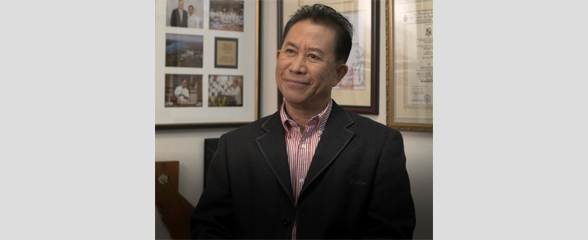 | Chef Martin Yan discusses the experiences that have made him the chef and television personality he is today. Martin grew up in Guangzhou during a turbulent period in modern China when there was famine and political unrest. Since childhood, he was exposed to food and ingredients because his parents owned a small restaurant and grocery store. He ate his mothers cooking and explains how it was necessary to stretch the limited ingredients available. He moved to Hong Kong for the opportunity to attend a Christian high school while working at a popular catering restaurant as a kitchen helper and a barbeque chef. After graduating from high school, he learned from a professional chef for about eight months. In exchange for free lessons, he helped the chef shop and prep the ingredients, a practice that helped him learn to identify what is fresh. With sponsorship from a Christian church, he went abroad to America to attend school. Struggling to make enough money for college, Martin persisted in acquiring a job despite being under qualified. He started holding a cooking class teaching local professionals about Chinese cuisine and culture at the University of California Davis, doing catering and pursuing his degree. After completing his degree, he immigrated to Canada and partnered up with a friend from Hong Kong to open a restaurant. He is recruited to be a replacement by a local radio stations personnel who frequented the restaurant to be a stand-in for a talk show program. Martin receives an offer to make the first season of his Yan Can Cook series, proceeds to publish a recipe cook book and completes two more seasons of the show. Now, he continues to travel the world to taste food and learn about other cultures, attend conferences, give lectures and cook. He discusses the recent trends of Chinese cuisine becoming specific and diversified and the differences between Western and Eastern food culture. Martin emphasizes the importance of being himself, upholding confidence, and continuing to persist to overcome struggles and survive. Most of all, with his passionate career of cooking, teaching, and sharing his craft with the world, he feels proud to be a Chinese American and encourages everyone to have fun in whatever they do. | 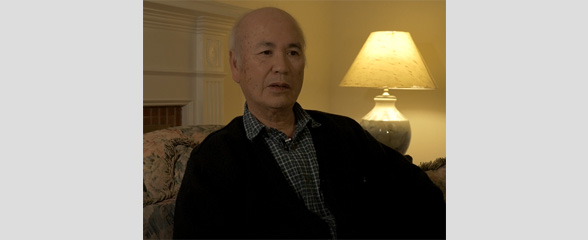 | This oral history focuses on the culinary practice of Ho-chin Yang. He discusses foods that he ate while growing up and moving to the United States. He reflects on the difference between Chinese and American food. Yang was first a language teacher then transitioned into a restaurant owner and cook at his restaurant the Home Plate Café. He later went on to teaching and instructed cooking and language classes. |









